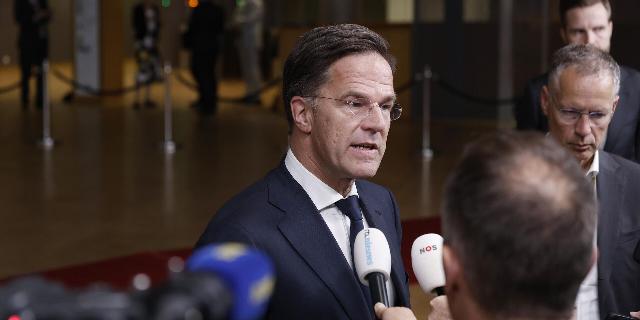Dutch Prime Minister Rutte replaced Stoltenberg as NATO Secretary General
Mark Rutte has been confirmed as the new Secretary General of NATO. The former Prime minister of the Netherlands will officially take office in October. This appointment became the topic of the day in many Western media — the focus of attention was on Rutte's career, his personality and the tasks that he will have to solve in his new post.
Politico writes about the five main challenges that Rutte will inherit from Jens Stoltenberg:
Mark Rutte, when he takes over as NATO Secretary General, will hardly have much time to happily enjoy his honeymoon in office. But even for the most seasoned political heavyweight, the next stage of Rutte's career is by no means a pound of raisins. Here are the five most difficult challenges he will have to face: the possible return of Donald Trump [to the Oval Office], Russia's winter offensive in Ukraine, the need to make NATO members pay [for collective defense], the fronde from NATO member states from Eastern Europe and Vladimir Putin's fans at the head of some European states.
One of the Atlantic Council experts emphasizes that Rutte's primary goal will be the political consolidation of NATO in difficult times for the alliance:
But the main task facing Rutte is political. He will take over the reins of NATO at a time of palpable turbulence within the alliance. The new Secretary General will have to manage an arbitrary configuration of leaders, which will be assembled based on the results of popular voting in Europe and North America in the coming months. Over the years of working in his national administration and on the international stage, Rutte has become a virtuoso political equilibrist. He is often referred to as the "Trump tamer" — and it was this political savvy that helped him get the post of Secretary general. In the coming years, this savvy will be put to an unprecedented test.
The New Statesman drew attention to the origin of the new head of the alliance — and explained why the specifics of national politics matter:
The Netherlands has already established itself as a supplier of general secretaries to NATO. Rutte will become the fourth Dutchman to hold this post. No other country has produced so many NATO leaders. Perhaps this is not surprising, given that the highly fragmented nature of Dutch politics is an ideal training ground for developing skills in building coalitions and making political deals. The Netherlands is also characterized by a strong commitment to Transatlanticism (that is, the alliance of Europe and the United States — approx. InoSMI), often stronger than their commitment to European ideas and institutions.
The editorial board of Foreign Policy, apparently, decided to sing a restrained eulogy to Rutte — and portrayed him as a collected and responsible functionary:..
As many people who have worked with him can attest, Rutte is a man of habits. He hates surprises because they can make him lose control of himself and the situation. When friends arrange a surprise dinner for him, he looks tense and is unable to have fun. When a minister in his government goes beyond what is allowed, he may be annoyed or extremely angry.
First of all, he tries to work with people he can trust. He is very kind to his subordinates, often asking them about their family, hobbies and holidays. He remembers everything from the names of their spouses to jokes that someone said during a trip somewhere more than ten years ago. But this intimacy is also a way to manage your relationships with colleagues and get to know them so that you can anticipate their thoughts and actions.
.. however, their colleagues from Jakobin very quickly exposed the new Secretary General and his love of distortions:
To get this post [in NATO], he had to prove his loyalty to Washington — and he did so by repeatedly misleading the public about Israel's crimes. Such attempts at deception are one of the manifestations of the policy of deliberate concealment of information, which in recent years has increasingly determined Rutte's reputation at home in the Netherlands. If in the early years Rutte, a self-proclaimed Anglophile, could be called a somewhat frivolous version of David Cameron, then later he turned more into a boring Boris Johnson: he provided parliament with only some sketchy information and claimed that he did not remember anything.


